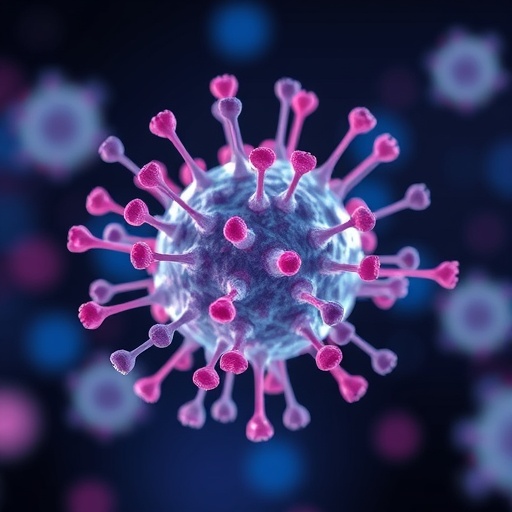Exosomes, the miniature vesicles secreted into bodily fluids, have long fascinated researchers for their potential applications in medicine. These nanoparticles, typically ranging from 30 to 150 nanometers, play a crucial role in cell-to-cell communication, and understanding their mechanisms could lead to groundbreaking advancements in various areas, including diagnostics and therapeutics. Recent studies, including the comprehensive review by Soltanmohammadi et al., highlight the promise that bio-fluid exosomes hold in translational medicine, revealing both the vast possibilities and the significant challenges that lie ahead in harnessing their therapeutic potential.
Exosomes are formed within the endosomal compartments of cells and are released into the extracellular environment when multivesicular bodies fuse with the plasma membrane. Their biogenesis is complex, involving lipid bilayers that encapsulate proteins, lipids, and RNAs, which are reflective of their cells of origin. This unique cargo composition presents a valuable opportunity for biomarker discovery in diseases as diverse as cancer, neurodegenerative disorders, and cardiovascular diseases. The potential for exosomes to serve as non-invasive diagnostic tools is an exciting frontier in translational research, with implications that could reshape the approach to patient care.
One of the most compelling aspects of exosomes is their ability to convey biological information between cells. They are enriched with various species of RNA, including mRNA and microRNAs, which can influence gene expression in recipient cells. This horizontal transfer of genetic material can modify cellular behavior and function, suggesting that exosomes could play a role in both normal physiology and disease pathogenesis. Current research focuses on elucidating the exact mechanisms by which exosomes interact with target cells, as this knowledge could ultimately inform therapeutic strategies that leverage their natural messenger capabilities.
Cancer therapy exemplifies a rich application for exosomes. Tumor-derived exosomes can educate surrounding healthy cells or even reprogram immune responses, thereby creating a conducive environment for tumor growth and metastasis. This dual role pushes the boundaries of cancer treatment paradigms. Investigations into engineering exosomes to deliver therapeutic agents directly to tumor sites are underway. This targeted delivery system could potentially enhance the efficacy of anticancer drugs while minimizing systemic side effects, presenting a novel approach that could redefine cancer therapeutics.
However, the path to utilizing exosomes in clinical settings is fraught with challenges. A significant obstacle in exosome research is the standardization of isolation and characterization methods. Current techniques to extract exosomes from biological fluids often yield varying results, complicating the comparability of studies. The diversity of exosome populations, derived from different cell types, also presents a hurdle in identifying specific markers that could be reliably used for diagnostic purposes. Overcoming these technical hurdles is essential for the broader acceptance of exosome-based applications.
In addition to standardization issues, the stability of exosomes in biological fluids poses another significant challenge. RNA and protein contents can be susceptible to degradation, which compromises their reliability as biomarkers. Therefore, ongoing research is heavily focused on developing preservation methods that ensure the integrity of exosome-derived cargo throughout the sample collection, processing, and storage phases, further underscoring the importance of methodical rigor in exosome research.
Despite these challenges, the potential for exosomes to facilitate personalized medicine cannot be overstated. Their ability to encapsulate therapeutic agents provides a unique opportunity for developing precision therapies that are tailored to individual patient profiles. This customization could lead to more effective treatment regimens in oncology, autoimmune diseases, and infectious diseases. Individualized medicine is the holy grail of modern therapeutics, and exosomes might play a pivotal role in realizing this vision.
Moreover, the potential of exosomes in regenerative medicine has become an area of great interest. Their natural ability to mediate intercellular communication could be leveraged to enhance tissue repair and regeneration. Studies suggest that exosomes derived from stem cells possess regenerative properties that could be exploited in treating injuries, degenerative diseases, and even age-related conditions. These findings have opened a new avenue in using exosomes not only as therapeutic agents but also as regenerative medicine facilitators.
Furthermore, delivering therapeutics via exosomes can circumvent many of the limitations associated with conventional drug delivery systems. For example, the lipid bilayer of exosomes enhances the bioavailability and stability of the encapsulated drugs, reduces off-target effects, and improves cellular uptake. This delivery system could revolutionize how we approach the treatment of chronic diseases, where patient adherence to medication regimens is often a significant barrier to successful outcomes. The exosomal route may provide a more patient-friendly alternative, increasing therapeutic efficacy.
As research continues to evolve in this field, global collaborations among scientists, clinicians, and biopharmaceutical industries are critical. Ensuring that findings are rapidly translated from bench to bedside encompasses not only breakthrough research but also alignment with clinical needs. Regulatory hurdles, ethical considerations regarding the use of exosomes in therapies, and the integration of novel technologies are vital elements in the pursuit of advancing this field.
In conclusion, the potential of bio-fluid exosomes in translational medicine is indeed vast and promising. As highlighted in the recent study by Soltanmohammadi and colleagues, these biological nanoparticles could usher in a new era of diagnostics and therapeutics, contingent on overcoming the present challenges. Exosomes are not merely waste products of cellular metabolism; they are dynamic entities that hold the key to the future of personalized medicine and innovative therapeutic strategies.
The path ahead is one filled with complexity and promise. Continued research and technological advancements will be crucial in leveraging the potential of exosomes in clinical applications, ultimately striving to improve patient outcomes across a multitude of diseases. As the scientific community pushes forward, the hope remains that exosomes will become a cornerstone of next-generation medical science.
<strong




